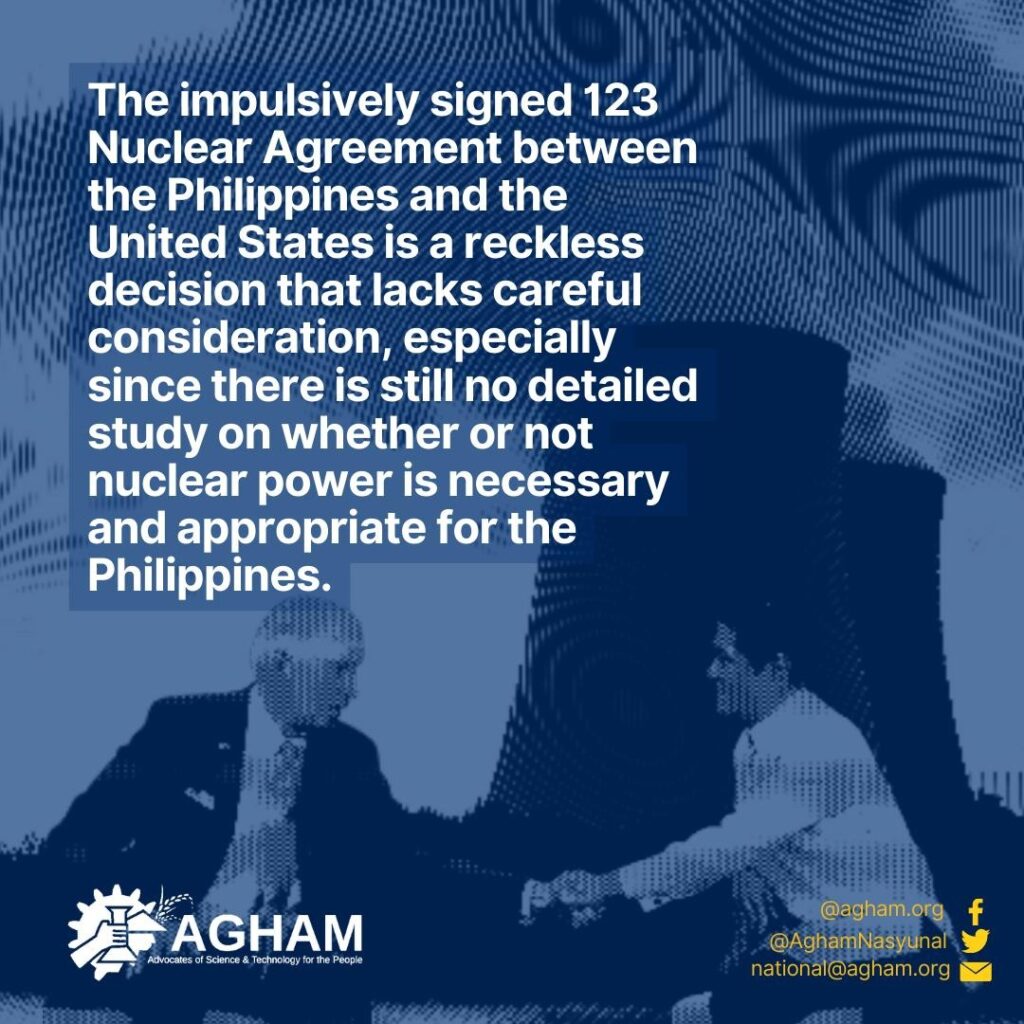
President Ferdinand Marcos Jr. and his allies have hastily signed the 123 Nuclear Agreement, neglecting the crucial step of conducting a comprehensive feasibility study. This omission leaves the Marcos administration without a solid foundation to justify their nuclear aspirations, as the International Atomic Energy Agency (IAEA) emphasizes the importance of such studies in assessing a country’s needs and potential for nuclear energy.
In a country where other indigenous sources of energy remain largely untapped or with inefficient and incomplete distribution systems, and with an extremely privatized energy sector owing to the Electric Power Industry Reform Act (EPIRA), nuclear energy will not resolve but only worsen the country’s energy crisis.
With the current state of Philippine science and technology and nuclear science and technology in particular, the signed agreement is dangerously premature. Since our nuclear S&T sector is still severely underfunded and understaffed, this agreement will give more mechanisms to the United States to pursue its imperialist objectives in the Southeast Asia region, adding the Philippines to its collection of countries with which it has unilateral control of their nuclear policy. To illustrate, as of this moment, there is no Filipino expert in nuclear safety or in radiological environmental impact assessment in the country. This means that we will have to disproportionately rely on the US nuclear regulatory mechanism, which will lead to us being clueless guinea pigs for their new nuclear technologies; since we do not have our own way of technically assessing future implementations.
Thus, Marcos Jr.’s supposed commitment to improving the energy sector by using nuclear energy is nothing but a facade to fool the public into believing that this is the answer to the energy crisis. As with his other policies, this will just be an edifice to be used as a talking point for the purposes of extending the Marcoses’ cling to power; with no real positive contribution, and even potentially dangerous, to the Filipino people.
If Marcos’ concern for the energy sector is genuine, he must then realise that the energy industry is guided by a framework of privatization under the EPIRA, which first needs to be junked and replaced by a public utility system that is not privatized but truly in the service of Filipinos.#
0 Comments